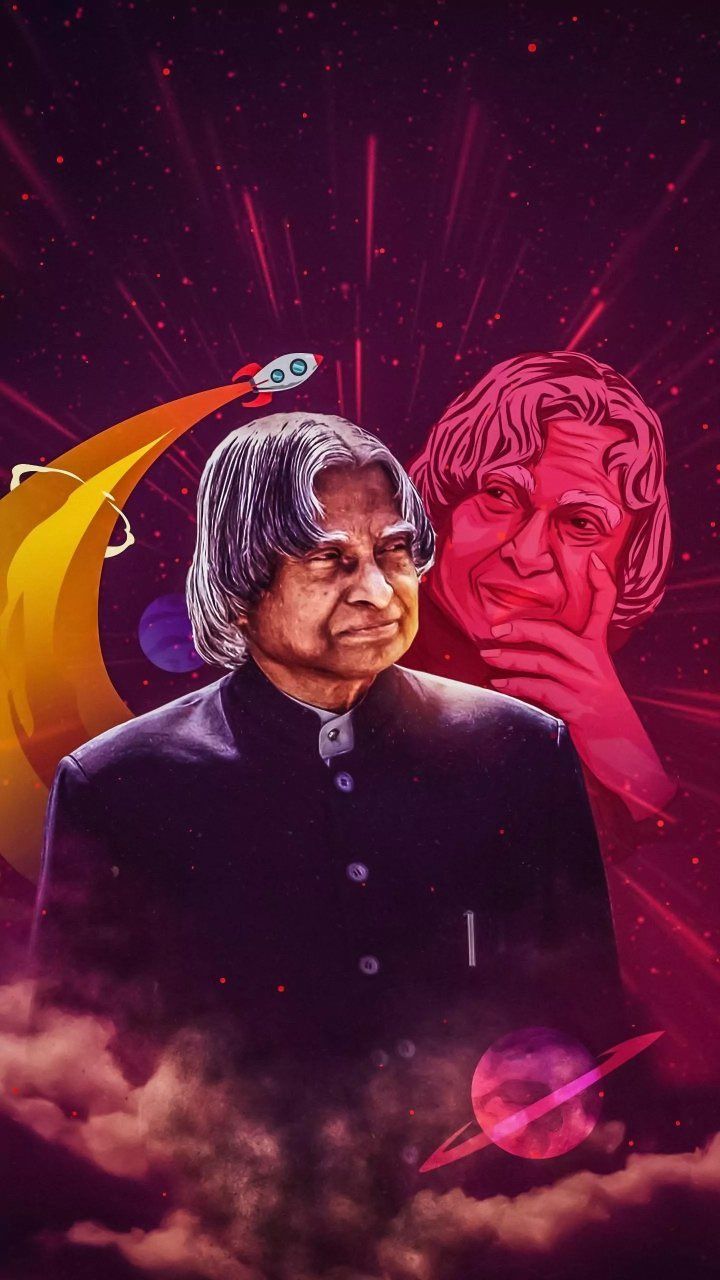Indian Scientists: Biography, Daily Life, Impact, History, and Significance
Indian Scientists: India has a long and rich history of scientific achievements, and its scientists have made remarkable contributions in various fields, from physics and chemistry to medicine and space exploration. Indian scientists have played a vital role in advancing knowledge and improving the quality of life, not only in India but around the world. This article will explore the lives, contributions, and daily lives of some of India’s most influential scientists, highlighting their impact on society and the world.
History of Indian Science
India’s contributions to science date back to ancient times, with mathematicians like Aryabhata and Brahmagupta laying the foundations for modern mathematics and astronomy. In the medieval period, scholars such as Al-Biruni and Ibn Sina made advancements in various fields of science, often blending knowledge from India with that of other cultures.
During British colonial rule, Indian scientists continued to make significant strides in various disciplines, with figures like Sir Jagadish Chandra Bose and C.V. Raman leading the way in physics and biology. Post-independence, India’s scientific community blossomed, particularly with the establishment of institutions like the Indian Institute of Technology (IIT) and the Indian Space Research Organisation (ISRO).
Today, India’s contributions to fields such as space exploration, nuclear energy, and information technology are globally recognized, and Indian scientists continue to be at the forefront of innovation and research.
India has a rich history of scientific contributions, with many scientists making groundbreaking discoveries and advancements in various fields. Here’s a list of notable Indian scientists:
Pioneers and Early Scientists:
- Aryabhata (476–550 CE) – Ancient mathematician and astronomer, known for the Aryabhatiya.
- Brahmagupta (598–668 CE) – Mathematician who introduced the concept of zero.
- Bhaskara II (1114–1185 CE) – Mathematician and astronomer, known for Lilavati and Siddhanta Shiromani.
- Srinivasa Ramanujan (1887–1920) – Self-taught mathematician known for his contributions to number theory and infinite series.
- Jagadish Chandra Bose (1858–1937) – Pioneer in radio and microwave optics, and plant physiology.
- C.V. Raman (1888–1970) – Nobel Prize in Physics (1930) for the discovery of the Raman Effect.
- Homi J. Bhabha (1909–1966) – Father of India’s nuclear program and founder of the Tata Institute of Fundamental Research (TIFR).
- Meghnad Saha (1893–1956) – Astrophysicist known for the Saha Ionization Equation.
- Satyendra Nath Bose (1894–1974) – Physicist known for his work on quantum mechanics and the concept of Bosons.
Modern Scientists:
- A.P.J. Abdul Kalam (1931–2015) – Aerospace scientist and former President of India, known as the “Missile Man of India.”
- Vikram Sarabhai (1919–1971) – Father of India’s space program and founder of ISRO.
- Subrahmanyan Chandrasekhar (1910–1995) – Nobel Prize in Physics (1983) for his work on stellar evolution and black holes.
- Har Gobind Khorana (1922–2011) – Nobel Prize in Physiology or Medicine (1968) for his work on genetics and the synthesis of nucleic acids.
- Venkatraman Ramakrishnan (b. 1952) – Nobel Prize in Chemistry (2009) for his work on the structure and function of ribosomes.
- M.S. Swaminathan (1925–2023) – Father of India’s Green Revolution in agriculture.
- E.C.G. Sudarshan (1931–2018) – Physicist known for his work on quantum optics and the Sudarshan-Glauber representation.
- Ashoke Sen (b. 1956) – Theoretical physicist and winner of the Fundamental Physics Prize for his work on string theory.
- G. N. Ramachandran (1922–2001) – Known for the Ramachandran Plot in molecular biophysics.
- Raja Ramanna (1925–2004) – Nuclear physicist and key figure in India’s nuclear program.
- Anil Kakodkar (b. 1943) – Nuclear scientist and former chairman of the Atomic Energy Commission of India.
Women Scientists:
- Janaki Ammal (1897–1984) – Botanist known for her work on plant breeding and cytogenetics.
- Asima Chatterjee (1917–2006) – Chemist known for her work on medicinal plants and organic chemistry.
- Tessy Thomas (b. 1963) – Known as the “Missile Woman of India” for her contributions to ballistic missile technology.
- Mangala Mani (b. 1962) – ISRO’s first woman scientist to spend over a year in Antarctica.
- Ritu Karidhal (b. 1975) – ISRO scientist and key figure in the Mars Orbiter Mission (Mangalyaan).
Space and Technology:
- K. Radhakrishnan (b. 1949) – Former chairman of ISRO, led the Mars Orbiter Mission.
- U.R. Rao (1932–2017) – Space scientist and former chairman of ISRO.
- K. Kasturirangan (b. 1940) – Former chairman of ISRO and member of the Planning Commission.
- Nambi Narayanan (b. 1941) – Aerospace engineer involved in the development of cryogenic engines.
Contemporary Scientists:
- Shankar Abaji Bhise (1867–1935) – Inventor known for his contributions to engineering and technology.
- Jayant Narlikar (b. 1938) – Astrophysicist known for his work on cosmology and the steady-state theory.
- C.N.R. Rao (b. 1934) – Chemist and recipient of the Bharat Ratna for his contributions to solid-state and materials chemistry.
- Manjul Bhargava (b. 1974) – Mathematician and Fields Medal winner for his work in number theory.
- S. Chandrasekhar (b. 1956) – Biologist known for his work on the genetics of aging and cell division.
Young and Emerging Scientists:
- Saurabh Vij – Researcher in molecular biology and genetics.
- Priyamvada Natarajan (b. 1969) – Astrophysicist known for her work on dark matter and dark energy.
- Gagandeep Kang (b. 1962) – Virologist and microbiologist known for her work on vaccines.
- Raghunath Mashelkar (b. 1943) – Chemical engineer known for his contributions to polymer science and innovation.
This list showcases the diversity of Indian contributions to science and technology, spanning ancient times to the modern era.
Biography of Notable Indian Scientists
- C.V. Raman
Chandrasekhara Venkata Raman, a Nobel Prize-winning physicist, is best known for his discovery of the Raman Effect, which demonstrated how light interacts with matter. Born in 1888, he became the first Asian to win the Nobel Prize in Physics in 1930. Raman’s work revolutionized the study of light and earned him a prominent place in the scientific community. - Dr. A.P.J. Abdul Kalam
Dr. A.P.J. Abdul Kalam, known as the “Missile Man of India,” was a pioneering aerospace scientist and the 11th President of India. He played a pivotal role in the development of India’s space and missile programs and was instrumental in India’s nuclear tests in 1998. Kalam’s contributions to science and his leadership in India’s technological advancements earned him the admiration of people worldwide. - Har Gobind Khorana
Har Gobind Khorana was an Indian-American biochemist who was awarded the Nobel Prize in Physiology or Medicine in 1968 for his work on the synthesis of proteins. Khorana’s research played a critical role in understanding the genetic code and the process of protein synthesis, making significant contributions to molecular biology. - Venkatraman Ramakrishnan
Venkatraman Ramakrishnan, a structural biologist, was awarded the Nobel Prize in Chemistry in 2009 for his work on the structure and function of ribosomes. Born in 1952, Ramakrishnan’s groundbreaking research has helped scientists better understand the mechanisms of protein synthesis and has had important implications for drug development.
Daily Life of Indian Scientists
The daily lives of Indian scientists involve a balance of intense focus, intellectual rigor, and creativity. Whether conducting experiments in laboratories, analyzing data, or reviewing research papers, Indian scientists dedicate themselves to advancing knowledge in their respective fields.
Many scientists begin their day early, reviewing the latest research, preparing for experiments, or working on theoretical models. While some scientists like Dr. Kalam were involved in administrative duties, others spend most of their time in the lab or field, working hands-on with technology and equipment.
For example, at ISRO, engineers and scientists work tirelessly to develop space technologies, with their daily schedules revolving around planning and executing missions. Similarly, physicists and chemists dedicate their days to research and experimentation, often collaborating with international teams to solve complex problems.
Impact of Indian Scientists on Society
Indian scientists have had a profound impact on society, contributing not only to scientific advancements but also to the economic and social development of the country. Dr. A.P.J. Abdul Kalam’s role in India’s space and missile programs, for instance, elevated the country’s status on the global stage, showcasing India’s technological prowess.
Similarly, C.V. Raman’s discovery of the Raman Effect revolutionized the field of optics and earned India global recognition in the scientific community. Indian scientists have also made significant contributions to healthcare, particularly in the development of vaccines and medicines that have saved countless lives.
In addition to technological achievements, Indian scientists like Har Gobind Khorana and Venkatraman Ramakrishnan have made breakthroughs in molecular biology and genetics, advancing our understanding of the human body and paving the way for new treatments and therapies.
Facts About Indian Scientists
- Nobel Laureates: India has produced several Nobel laureates in science, including C.V. Raman (Physics), Har Gobind Khorana (Physiology or Medicine), Venkatraman Ramakrishnan (Chemistry), and Subrahmanyan Chandrasekhar (Physics).
- Space Achievements: ISRO has made significant strides in space exploration, with missions like Chandrayaan, Mangalyaan, and the Mars Orbiter Mission, which have established India as a major player in space technology.
- Innovations in Nuclear Science: Indian scientists have been instrumental in advancing nuclear technology, with pioneers like Homi J. Bhabha laying the groundwork for India’s nuclear program.
Importance and Significance of Indian Scientists
Indian scientists have played a crucial role in shaping the modern world. Their contributions to technology, medicine, and space exploration have had a lasting impact, not just on India but globally. The work of these scientists has led to innovations that have improved the quality of life, from the development of life-saving medicines to advancements in telecommunications and energy.
Furthermore, Indian scientists have inspired generations of young minds to pursue careers in science and technology, contributing to the growth of India’s knowledge economy. Their work continues to drive progress and innovation, helping India to become a global leader in science and technology.
FAQs About Indian Scientists
1. Who was the first Indian scientist to win the Nobel Prize?
C.V. Raman was the first Indian scientist to win the Nobel Prize in Physics in 1930 for his discovery of the Raman Effect.
2. What is the significance of Dr. A.P.J. Abdul Kalam in Indian science?
Dr. A.P.J. Abdul Kalam played a key role in India’s missile and space programs and was instrumental in the country’s nuclear tests. He is also remembered for his visionary leadership and contributions to science education.
3. How has ISRO contributed to global space exploration?
ISRO’s space missions, such as Mangalyaan (Mars Orbiter Mission) and Chandrayaan, have earned India a reputation as a leader in space exploration, contributing to global scientific knowledge and international cooperation.
4. What is Venkatraman Ramakrishnan known for?
Venkatraman Ramakrishnan is known for his groundbreaking work on the structure and function of ribosomes, which won him the Nobel Prize in Chemistry in 2009.
Conclusion: Wishing Continued Success to Indian Scientists
Indian scientists have made monumental contributions to humanity, advancing knowledge and improving lives through their research and innovations. As India continues to lead in science and technology, it is important to recognize the dedication and passion of these brilliant minds, whose work continues to inspire and shape the future.











通过本平台,您可以联系专门从事一次性的高风险任务的人员。
我们汇集大量技能娴熟的工作人员供您选择。
无论需要何种复杂情况,您都可以方便找到胜任的人选。
雇佣一名杀手
所有任务完成者均经过严格甄别,确保您的利益。
任务平台注重匿名性,让您的危险事项更加无忧。
如果您需要详细资料,请直接留言!
On this site, you can browse top websites for CS:GO betting.
We list a selection of wagering platforms focused on the CS:GO community.
All the platforms is tested for quality to guarantee trustworthiness.
csgo case gambling
Whether you’re an experienced gamer, you’ll easily find a platform that fits your style.
Our goal is to assist you to access the top-rated CS:GO gambling websites.
Start browsing our list at your convenience and enhance your CS:GO gaming experience!